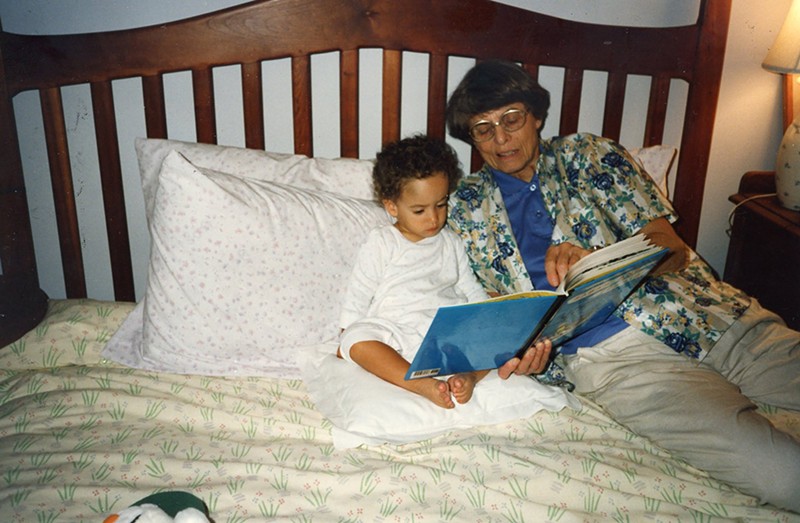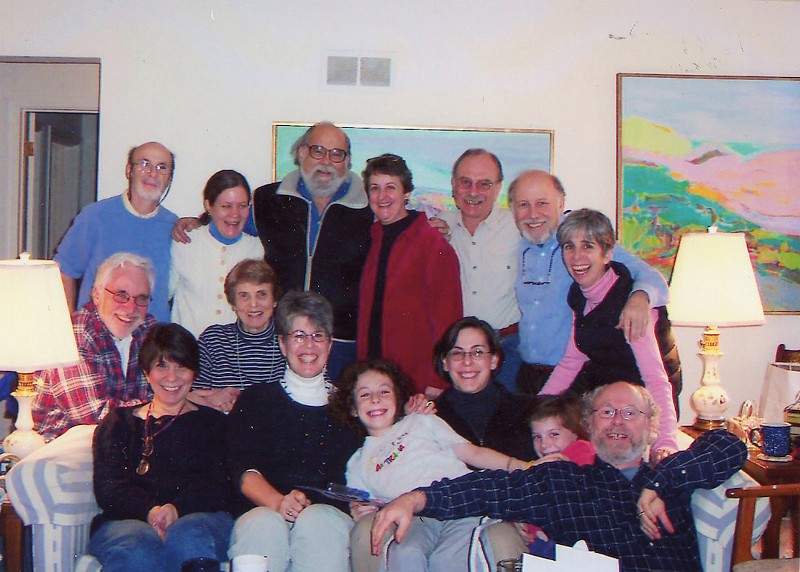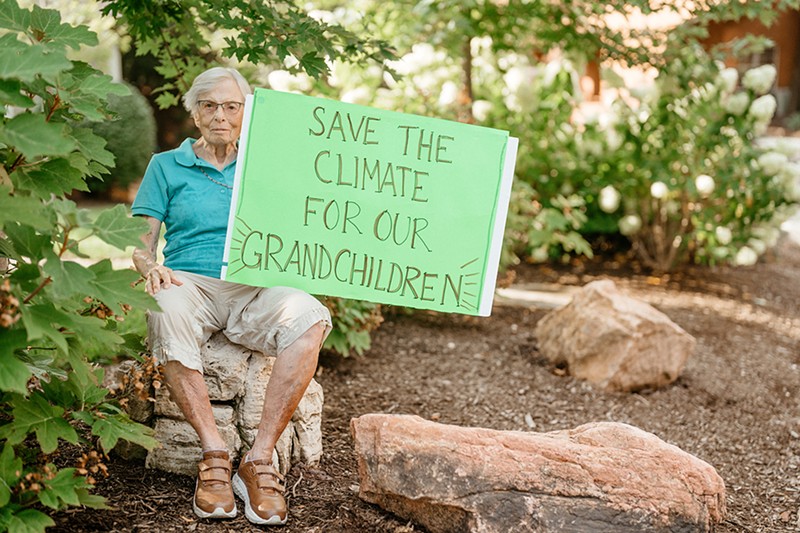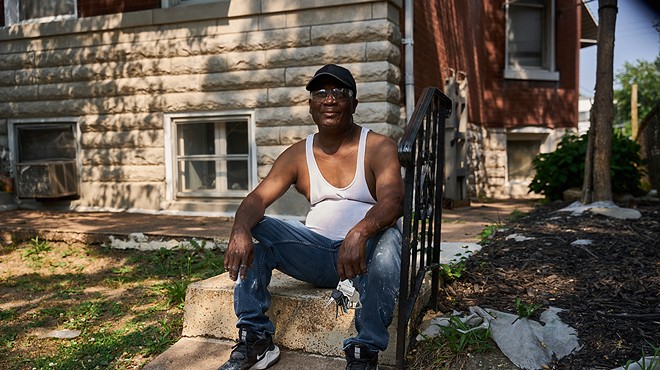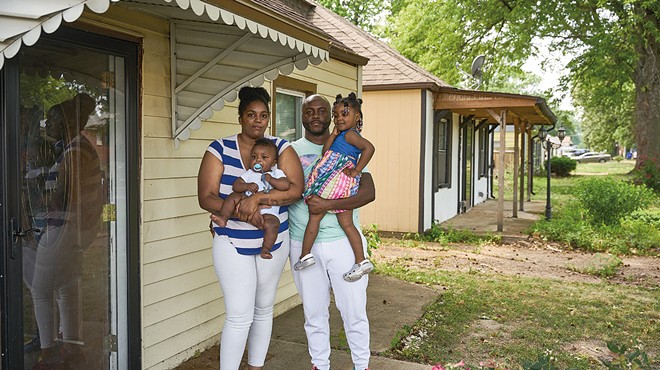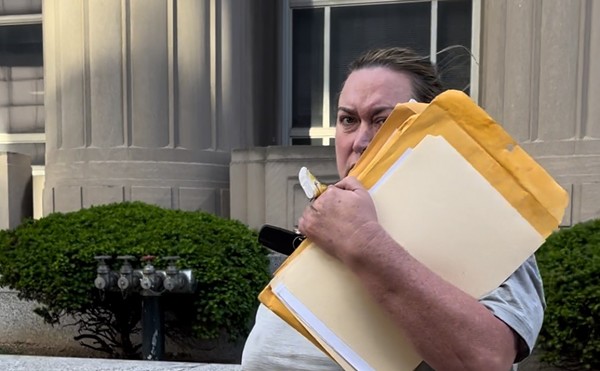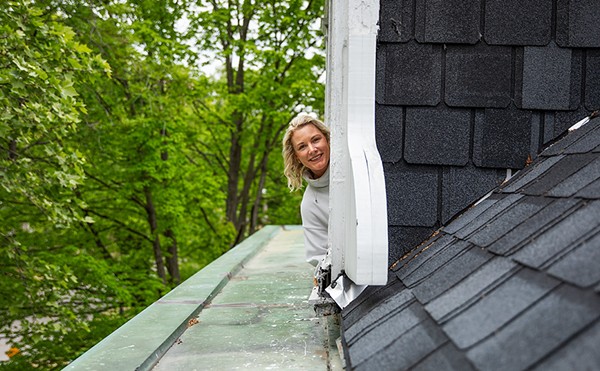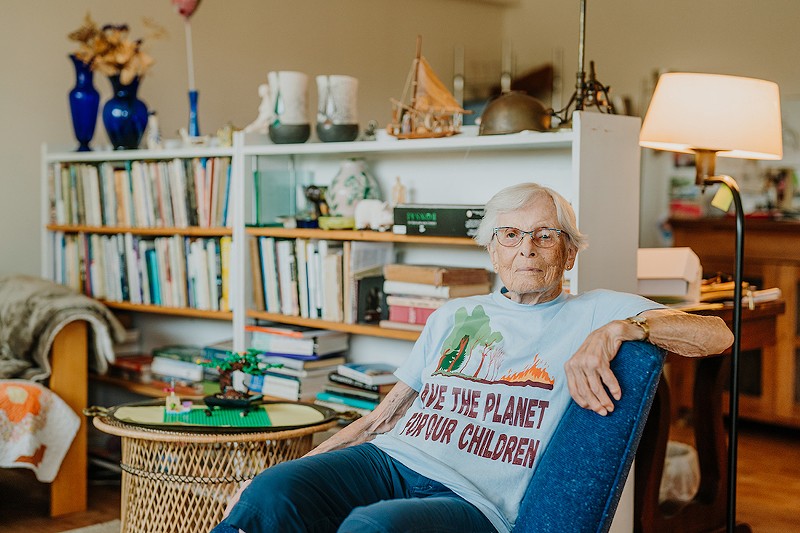
If a director were filming a documentary about Gloria Gordon for her 100th birthday, they might start with her first job: organizing, at 22, a standing-room-only rally for presidential candidate Franklin Delano Roosevelt, which led to a second job that captured the interest of Eleanor Roosevelt.
Or they might skip ahead to show Gordon in the 1960s, coordinating the now-famous Baby Tooth Survey, which gathered literal proof of radioactivity entering children’s bodies after above-ground tests of nuclear weapons. The study led to President John F. Kennedy signing a major ban on nuclear testing. Or skip way ahead to show her, at the age of 89, starting a new nonprofit to help older adults.
A chauvinistic director might make the mistake of spotlighting her husband of 30 years, Barry Commoner. Sure, he ran for U.S. president, and TIME magazine tagged him “the Paul Revere of ecology.” But “Gloria was a person in her own right, to put it mildly,” says Ben Senturia, who studied under Commoner and later worked as an activist alongside Gordon.
How would she start her life story? She wouldn’t make the documentary in the first place. She is unusually self-deprecatory — or, more accurately, self-dismissive. Not in the coy way that begs for contradiction, but because she wants all eyes on the issues, and no individual can tackle them alone.
But if forced, she would probably start with her pony.
She was eight years old and had whooping cough, and being around horses was supposed to be good for kids with whooping cough. So her father bought a pony and stabled it at a farm near their home, in Westchester County, New York. The first time Gloria’s mom brought her to see Poppy, the farmer saddled the pony and pointed Gloria toward the paddock, its rails almost invisible in the heavy snow.
The only time she’d ridden a pony was at a county fair, carefully lifted into the saddle and led around a circle. But she shrugged, climbed up and rode to the paddock, urging Poppy on. “She didn’t know me yet,” she would explain later, after she trudged back to the stable covered in snow. Poppy had thrown her and galloped back alone.
“You get back on that pony and show her who’s boss,” the farmer said, ignoring Gloria’s panicked mother.
And so she did, and from then on, she and Poppy had no problems. They took the bridle paths through the woods, Gloria loving the freedom of being out there all by herself, the respectful nods from other riders as they passed. Already, she was learning to navigate the world.
A cyclone of energy — what decides which direction it will blow? Gloria’s first influence was her grandparents, Lithuanian Jews who fled to New York to escape persecution under the Russian tsar. From one grandfather, Gloria drew a love of nature; from the other, her abiding sense of humor. And from her mother’s mother, she received pure affection. “She and I were buddies,” Gordon says. “Sometimes we even had a little pact to get around my mom. She was trying to raise her children in the right way, but she didn’t have the unconditional love that you can get from a grandmother.”
Warmed by reassurance, schooled in the arts and wholly in love with the natural world, Gordon headed off to Oberlin College. On its faculty were professors who had fled antisemitism in Europe. Gordon worked as a secretary for one, a political scientist, typing his dictated thoughts and polishing his heavily accented English as she went. “The underground movement in Europe during the war became my standard of what people have to do to fight bad government,” she would say later.
Being Jewish made you an outsider, and that feeling, uncomfortable as it was, made it easier to think independently. Being Jewish also made you vulnerable to irrational hatred. How could you succeed strictly on your own merits when colleges still had quotas for Jewish students? To survive, you needed the help of others.
This realization dovetailed with the enthusiastic activism of her college roommate, Susan Knopf. “If something is going wrong, we get together with other people and organize a meeting” — that was Knopf’s approach. At eight, Gordon had learned that she could face the world on her own, but now she was beginning to see what people could do when they pulled together. Knopf had handed Gloria her life’s M.O.
Also, her future husband.
Knopf had an old friend, Barry Commoner, whose roommate at Harvard took her fancy. She eventually married that roommate, and in perfect symmetry, Gordon married Commoner in 1946. Was it love at first sight? “No. He pursued me,” she says. And first, she stalled: She wanted a career.
After graduation, she landed her first job: organizing a youth rally at Carnegie Hall in 1944 to help re-elect FDR. “How do I do this?” she asked, always blunt. A campaign staffer assured her that there was a desk at the Hotel Astor where she could find reps for various nightclub entertainers, many of whom were enthused about FDR. “Just go there every day and tell them what you want, and you will be able to get a rally together.”
She packed Carnegie Hall. Mounted police were posted out front to control the crowd. She was so stunned, she forgot to feel proud.
That job led to one as executive secretary for the U.S. Student Assembly, an organization that greatly interested Eleanor Roosevelt. She invited its members to meet at the Roosevelts’ New York brownstone, and Gordon found the First Lady “informal, relaxed, very accessible.” Both women were interested in journalism (Gordon had been the news editor for her high school paper) and in social reform. And both would help their husbands far more than the world would acknowledge.
Barry Commoner rose fast. He became a professor of plant physiology at Washington University in 1947, and his writing introduced the concept of sustainability long before climate change became an emergency. Together, he and Gordon led a nuclear information movement, asking scientists to explain to the public what a nuclear bomb was, what happened when one exploded and what nuclear fallout could do. Gordon, a peace activist, also worked with the nuclear freeze movement. And she made sure enough of the nation’s baby teeth eluded the Tooth Fairy that scientists could test for strontium-90, introduced into children’s mouths by nuclear tests.
The couple managed to relax a bit every summer, splashing around with their son and daughter on an island near the Canadian border. The kids learned to love nature, as Gordon’s granddaughter, Olivia, someday would too, working at the zoo, riding horseback whenever possible, rescuing dogs. On a trip to Costa Rica, Olivia found a stray dog in such bad shape (he probably found her), she made a frantic phone call to her mother, who figured out how she could bring the dog home.
In this family, if you were helping a living creature, anything was worth the trouble.
By the time Commoner made his unsuccessful but educational bid for the U.S. presidency, in 1980, he and Gordon were divorced, though still good friends. He remarried; she did not. “It’s so complicated to get married,” she remarks now. “I haven’t known anyone else I would undertake that with.”
She started a support group for divorced women because she felt they had a lot to talk about. She had her Ph.D. in psychology by then, and clinical experience. She had also done groundbreaking research. Her master’s thesis proved that racism stops white people from learning information about people of color. Her later scholarly research showed how shift work and occupational stress can damage people’s mental health.
Gordon directed a study at Columbia University’s School of Public Health, then taught at Saint Louis University. She continued to explore “how people see things, and how we have biases and points of view that keep us from seeing reality clearly.” That was her clean summary of a life’s work, described to Malaika Horne in an oral history for the State Historical Society of Missouri.
There were failures, like the cohousing project she envisioned as “a more humane way to live, with people sharing and building something together.” St. Louisans were too used to a conventional lifestyle, so she set the idea aside; there was plenty else to do. She and fellow activist Ben Senturia were among the organizers of a local chapter of Brit Tzedek v’Shalom, a group that hoped the U.S. could broker peace between Israel and Palestine. Hasn’t happened yet. But as a member of Central Reform Congregation, she started a chavurah (a group of friends formed for religious purposes) that is still meeting weekly 34 years later.
One of the chavurah’s members, Judy Leon, grew close to Gordon. “She’s been a better parent to me than anybody,” Leon says now, and the affection is mutual: Leon is the person to whom Gordon entrusts her ideas. “I do not want a 100th birthday party,” Gordon snapped, as a recent example. “What I want is for people to do something about climate change.” Compromises were reached as Gordon approached her August 4 centennial, but even so, Gordon kept pressing. She called Leon early one morning to suggest they use the party to gather an interfaith, interracial group that could talk about the climate crisis as an ethical dilemma.
“She’s passionate about justice,” Senturia explains. “If she sees a problem, she wants to do something about it. She has this strong sense of responsibility and initiative and follow through, and she’s assertive. At almost 100, she’s driving us crazy wanting to do something about climate change!” His laughter is fond. “She pushes. But personally, I like that. I enjoy conversations with her because she’s smart as a whip, and she pushes, and I’m willing to push back.”
He adds (as people do when they have worked with her or loved her or met her more than once) that she is an extraordinary listener: “There are people you know with whom you feel a deep connection, and it isn’t just the people who are closest to you, but something about some people. I feel that with Gloria. And she’s a smart listener. She gets it, and she asks good questions back. She’s with you.”
An unwitting echo from Peter Kinoy, son of Gordon’s college roommate: “When Gloria’s with you, she’s 1,000 percent with you. She is the very best listener I’ve ever met. Not only will she listen to what you’re saying, but she will think about it a bit and ask you a question that cuts to the very heart of the situation. It’s extraordinary.
“She doesn’t give advice,” he adds. “She helps you think through something by asking these very interesting, probing questions that help you come to the understanding of the advice she did not give.”
“She’s taught me not to judge,” says Debbie Piccozzi, who came to work as a caregiver and is now honored to feel like Gordon’s friend. “She just listens and never judges. And she knows how to read people. Sometimes I think we don’t have any secrets between the two of us!”
Gordon “makes fun of herself all the time,” Leon says, “but she never has a bad word to say about anyone. I complained about someone once, and she said, ‘Everybody’s got reasons for who they are, and everybody’s doing the best they can.’”
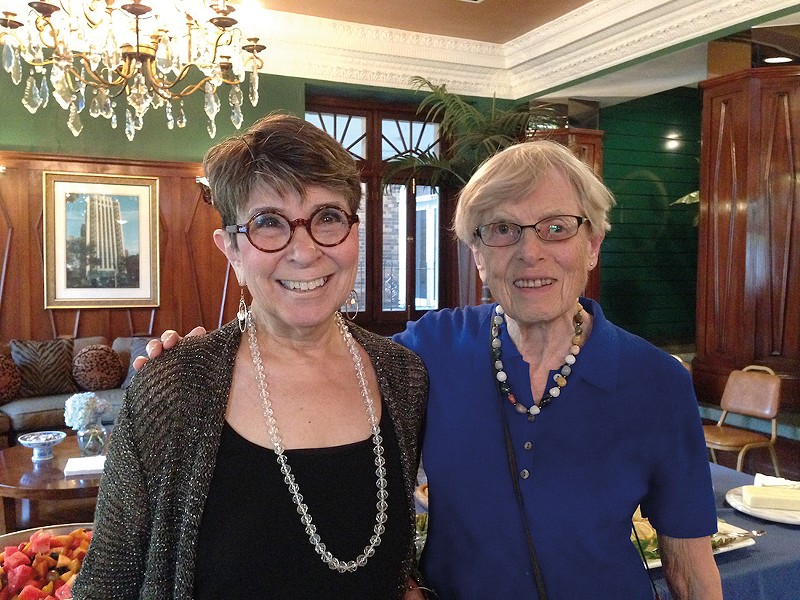
Too much is urgent to sweat the small stuff. Even in activism, “Gloria doesn’t like to do small-scale things,” observes a Wash U student, Rachel Buenger, who has been interviewing Gordon about her life. “She always wants to do something that is going to make a big splash.”
STL Village, for example. She read about a cool project in Boston, a nonprofit that made it easier for people to stay in their own homes as they aged by pooling resources, offering help with rides to doctor’s offices, house repairs — all the niggling, mundane challenges that begin to loom, and can cause thinned patience to snap.
Gordon lit the fire, and people warmed to the idea immediately. A committee excitedly drew boundaries around the Central West End. No, no, she said, erasing one of those lines to extend the boundary north of the Delmar divide. The project would be interracial, economically diverse, geographically diverse.
And so it is, 11 years later, and thriving. By helping people age well, STL Village is combatting the ageism Gordon sees as the latest civil rights struggle.
“What needs to be done is to increase the amount of organizing of older people, so they feel empowered,” she says briskly. “And so they know it’s okay to stop someone from calling them Dear or Honey or Sweetie. I’m not Sweetie.”
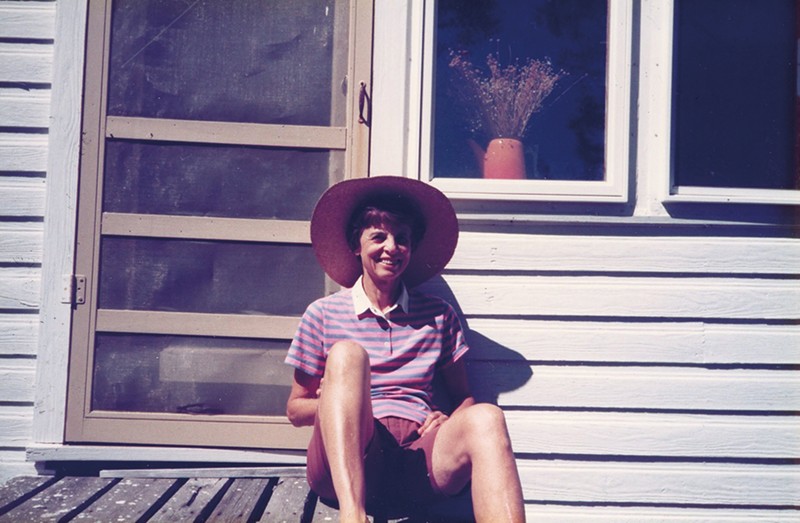
STL Village is an ongoing, public curriculum, but Gordon’s own life is also instructive. She had no intention of withdrawing, letting her brain get soggy, letting her body fall apart. So she stayed engaged, made new friendships, stayed close to old friends, walked for hours in Forest Park every day — and lived on her own until just a few years ago.
She has eaten a plant-based diet for years because a friend who happened to be a cardiologist pointed out that fatty food did no one any good. She still walks daily, even though arthritis grinds her hip. What does she not do? Veg, or obsess, or shop. She’ll watch the news on PBS, animal documentaries and maybe an old black-and-white Marx Brothers comedy now and then. Otherwise she’s reading, writing, talking, galvanizing a response to climate change, relishing nature and doing all she can to protect it.
Stuff has never mattered. “I’ve never seen her spend money just to buy something she wants,” says Piccozzi. “Just her food, because it’s 100 percent organic. That’s where she spends money and doesn’t look at the price.”
The two women have grown close. Gordon is stubborn, but Piccozzi honors that. She was stunned to learn — slowly, as they came to trust each other — all her client’s accomplishments. And she loves waking her in the morning and hearing her say, droll but merry, “I feel like the Queen of England.”
She also admires Gordon’s utter lack of materialism. “Was your husband OK with your decorating,” Piccozzi once asked tentatively, glancing around the simple, sunlight-filled apartment, “or did he want something more modern and sophisticated?” Gordon assured her that they both had simple tastes. Even as a teenager, if she needed a new outfit, her sister had to drag her to the stores and pick something out for her.
No vanity. No desire for attention, either; she almost didn’t grant an interview for this profile, because she didn’t want to be asked tiresome questions about what you have to do right to live to 100.
Here is what a conversation with Gloria Gordon is like.
“What do you not want to talk about?”
“I don’t want to talk about my birthday. I’m using it as a chance to talk about the climate. This is a moral issue: What we are doing is a crime. Maybe the way to approach it is as an interfaith question, get representatives of all the different churches — Black and white and everything, just a very diverse bunch of people — to sit down and talk about what to do. Instead of being so upset that we don’t want to talk at all.”
“You’re a psychologist: What does it take to galvanize people?”
“It’s been different over the years. Right now, it’s so depressing that I don’t know the answer to that. Except to get some action going.”
“Was it this hard back in the ’60s, when you were trying to educate people about the dangers of those above-ground nuclear tests?”
“No. It was a matter of information. This is what’s happening, and this is what we’re going to do about it. We gave people something to do right away: send their children’s baby teeth. They were important scientifically.”
“Name one thing you wish everyone in the world could realize.”
“Well, forget it. I think everybody knows that’s not going to work. There isn’t any one thing; everybody’s coming from their own position. We just need to find a way to bring people together.”
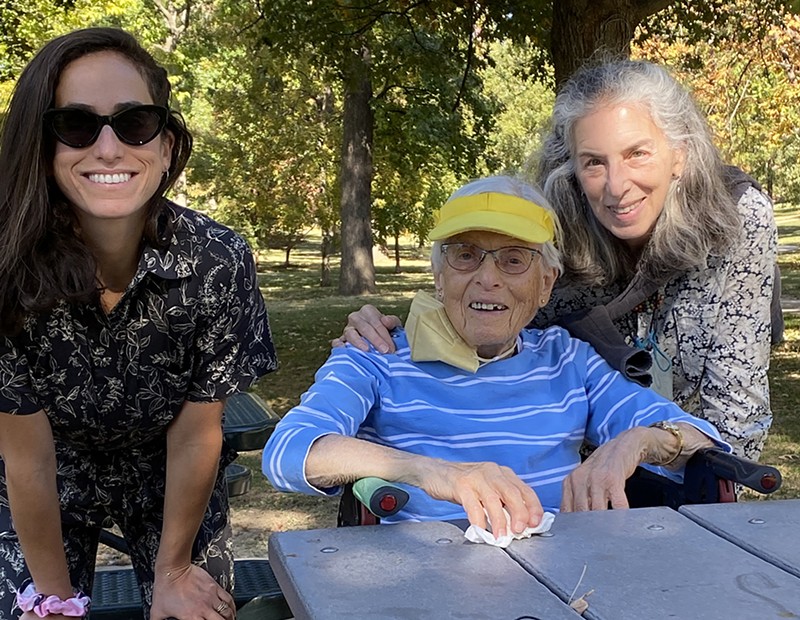
Her rabbi at CRC, Randy Fleisher, says Gordon was “quite ahead of her time, constantly urging me and the synagogue to get involved in climate change activism. To be braver, to do more.” He went with her to the meetings of a student environmental group at Wash U: “She was by quite a large ratio the oldest person there, but they loved her. They had an action at the Galleria, and I brought her, and we stood out on the street for six hours.” That was right before the pandemic. When he called during lockdown, she heard his voice and burst into tears. “I want to be involved,” she wailed. “I want to help.”
She is not, she concedes, a patient woman. What irritates her? “Oh, my goodness. ‘Irritate’ is a mild word for what’s been going on in this country and in the world. It’s infuriating. And so … stupid.”
How does she care so much about a burning world, and feel so impatient for its repair, without becoming despondent?
“She has this scientific mind,” offers Kinoy. “She takes a very logical approach to things. On the other hand, she’s an extraordinarily emotional person — she has great access to her emotions. It’s quite a wonderful combination. And because she’s a political person, all her life she’s done things with other people, so her emotions don’t sink her into despair.”
The planet’s current predicament is, however, testing that resiliency. Not long ago she told Leon that she had lived through a war, a depression, every major disaster, and she has never been as depressed about this country as she is now. “It’s hard to have any hope,” she admitted, “and I’ve always had hope.”
On days when the frustration takes over, Piccozzi says firmly, “Let’s go to the country.” Gordon and Commoner bought a little house near Potosi years ago, and the absence of indoor plumbing is more than countered by the chance to see even the faintest constellations. “I love the night sky,” she says, closing her eyes to visualize them. Not because it’s calming, she adds quickly, but “because it’s amazing. You see yourself on this planet and all those other planets, and you are into this whole setup.”
On a recent weekend there, she wrote an open letter “to the children who will inherit our once-beautiful now-battered planet.” What was needed, she told them, was “an unprecedented planetary movement with all on board.”
Nature, for Gloria Gordon, is not an escape. It is the point.
For more on the River City Journalism Fund, which provided funding for this project and seeks to support local journalism in St. Louis, please see rcjf.org.
Subscribe to Riverfront Times newsletters.
Follow us: Apple News | Google News | NewsBreak | Reddit | Instagram | Facebook | Twitter | Or sign up for our RSS Feed

